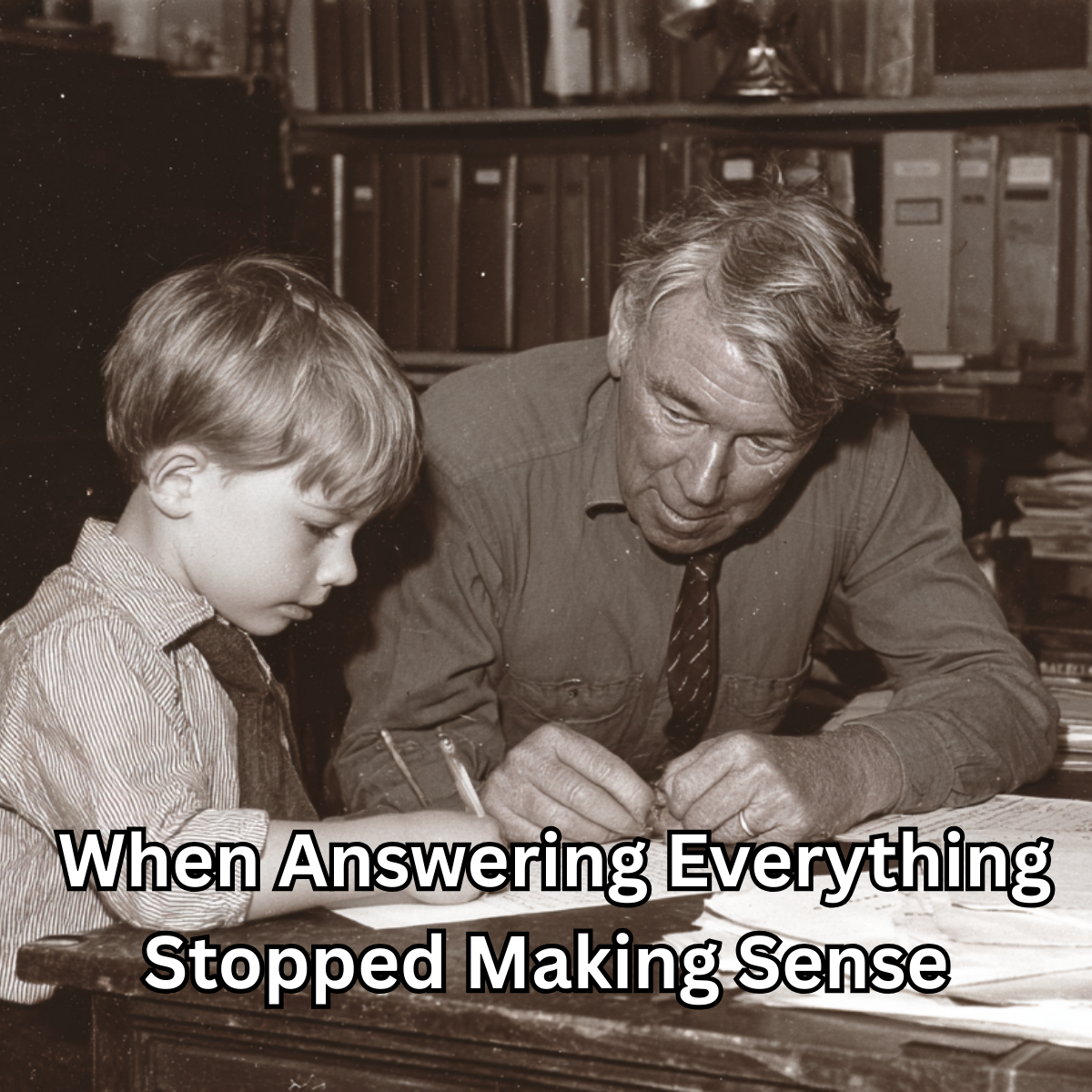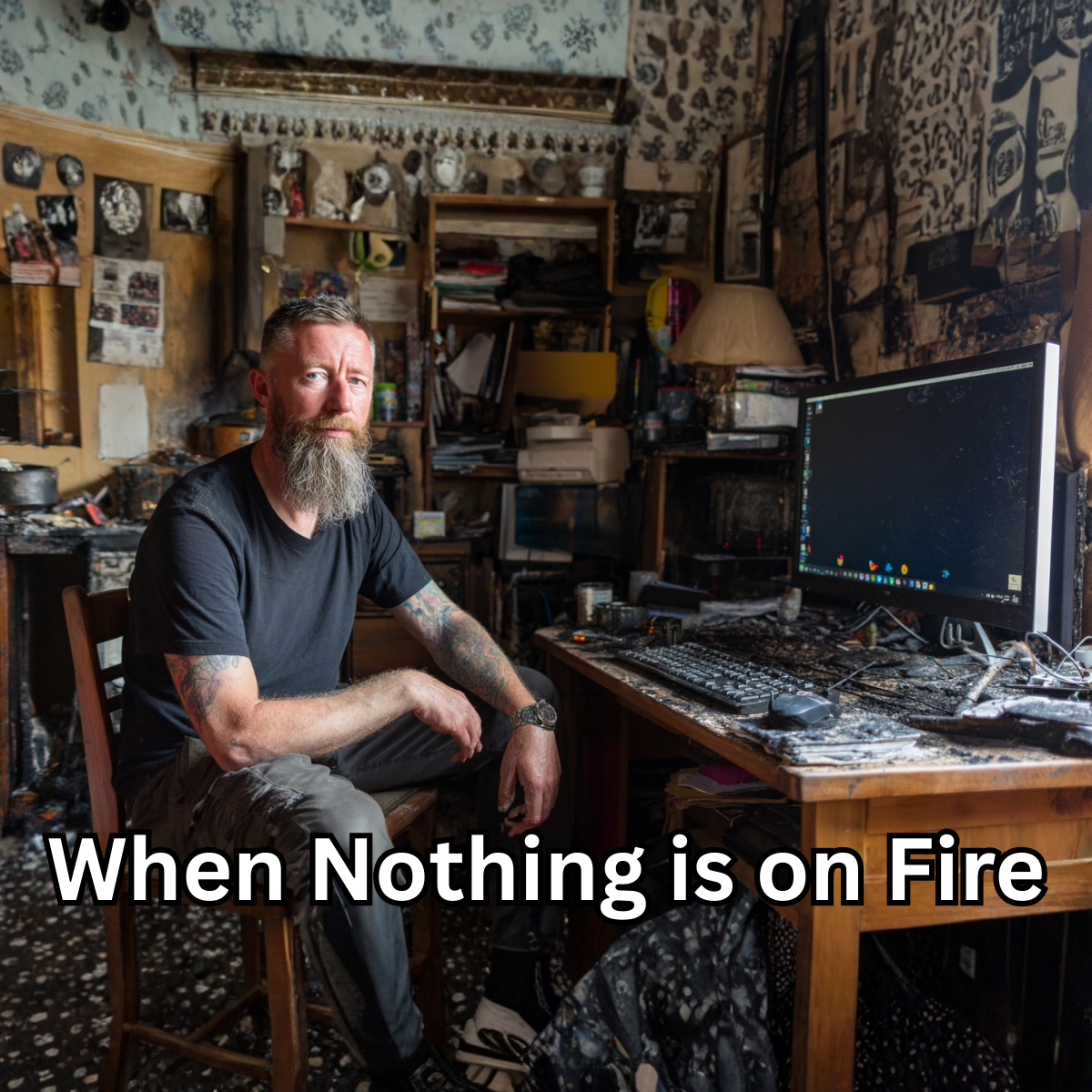When I was in my first year of college, I was in this philosophy class. I did not do well in this class at all, apparantly you are not supposed to ask questions while studying a survey of world philosophies openly. If you are worthy, pay enough money, and attend the right schools, then you can eventually earn a degree that gives you the right to ask questions. My 18 year old brain did not understand or even grasp this limitation, so I asked my questions and was rewarded with the letter grade of “F.” However, I did learn a lot from this class, but not from the textbook or instructor; rather, the man who sat next to me.
One day, we were watching a video on “Plato’s Theory of Forms,” which the Public Broadcasting System filmed sometime in the early 1960s. This film had the look and feel of Conan the Barbarian without the exceptional acting and enthralling fight scenes. If you missed the sarcasm, this documentary was excruciatingly boring. I think my Father taught me about Plato when I was a kid, and this documentary was rudimentary at best, which meant that I was disinterested, to say the least.
While I was scribbling my miserable, jumbled-up emotions onto a scrap piece of paper, the unkempt, silver-haired man in a tweed jacket next to me asked, “Do you play chess?” At first, I was shocked because prior to this moment, I did not know this man talked. I was equally surprised by his query because I loved playing chess, and for someone in public to ask me that question randomly was kin to someone asking me if I wanted a free trip to Disneyland. He did not wait for my response; he said, “e4.”
This was the ultimate chess player query. I had one moment to prove my membership in this secret club and demonstrate my worthiness to be part of the chess community. My response? “e6.” Just a quick primer. “e4″ is the most popular opening move in chess. It is the opening where you move the King’s Pawn up two spaces to immediately claim a position in the center of the board. The usual response is”e5,” which is the same move in opposition. “e6” is not a common opening but the beginning of a defensive strategy called “The French Defense.” By playing that move, I signaled A. That knew how to play chess and B. That I was good enough to know an alternative opening.
We then played by whispering moves to each other during the documentary. We did not have a board, just playing from memory. After about 10 moves, I was completely lost and could not accurately remember the location of all the pieces. I was not discovered because the class ended, and we were dismissed. As we walked out of the room, I could hear the documentary voice (do they get training to sound like that?) going on…”In the allegory of the cave, the prisoners chained inside are only able to see the shadows on the wall, cast by objects from behind them….” I felt for a moment that I was the same way, distantly remembering where my knight was supposed to be on that board in my head when I was interrupted by my newfound chess friend, “What are you doing tonight? You wanna finish that game?”
Later that night, my new silver-haired friend blew a long tendril of tobacco smoke in my face as I studied my precarious position. I really wanted to castle King’s side, but if I did so, I would leave a square unguarded, and he had a knight in a potential position that could be really harmful to me. That is what I hate about the French Defense: all this energy to capture a single pawn, and you can never get that King’s side protected. I lost that game and the next 5 games after that. When the games were over, we sat back in his studio apartment and started discussing, well, you guessed it, philosophy.
As it turned out this man had spent a lifetime studying world religions. He was a lexicon of the various phrases and concepts of the major world religions. He was particularly fascinated by Buddhism, but we spent most of our evening talking about practicing Hinduism. Here, I was allowed to ask questions, and so I did. He seemed to know and understand quite a bit, and I spent several more hours trying to understand the basic tenets of the world religions that this man knew about.
For several more days, I would show up at his place after philosophy class. He would beat me decidedly in chess for several games, and then he would sit back and answer my questions about the various mythologies in the world. This continued for most of the semesteruntil one evening, I beat him in a game of chess. Our relationship ended shortly after that, and I can never quite tell if it was because I beat him or I had run out of questions—perhaps both.
That was my first semester of college and my first college course. I received, rather proudly, I might add, my letter grade of “F,” but left the experience much wiser about the world. Here are a few things that I learned that semester:
- You should always play with people much stronger than you. That is the only way that you will improve.
- Be prepared. You never know when you will have to answer the challenge, “e4.”
- We each have our own personal dharma, and the more we understand that and fulfill our role, the happier we will be.
- True knowledge and understanding come from contemplating abstract and eternal truths rather than relying solely on what we can see.
- My college grades meant absolutely nothing during the course of my life




